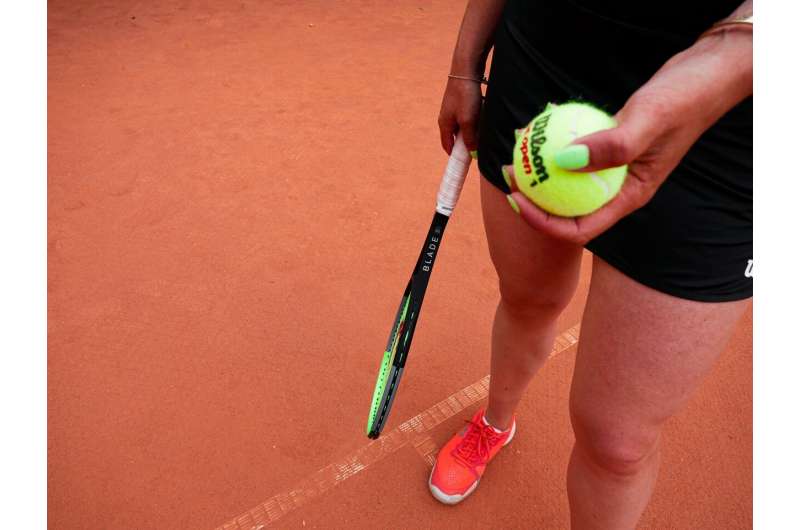Helping young athletes find a winning formula for wellness

On May 31, 2021, professional tennis player Naomi Osaka withdrew from the French Open, revealing a battle with long-term depression that left her unwilling to take part in mandatory media commitments. A few weeks later, American gymnast Simone Biles withdrew from the gymnastics final at the Tokyo Summer Olympics, citing the need to protect both her mind and body.
"It must have taken a lot for (Biles) to do that. It would be a tough decision," says Amber Mosewich, associate professor in the Faculty of Kinesiology, Sport, and Recreation and member of the Women and Children's Health Research Institute. "But it also speaks volumes that athletes know what's best for themselves. And that's what she needed at that point."
In the world of professional sports, an athlete prioritizing wellness over the possibility of winning is a new concept. But for Mosewich, finding ways to help athletes develop psychological skills along with physical ones is something she's been interested in throughout her career.
In her research, she looks at how athletes cope with stress and high expectations—from themselves as well as others.
Her latest project, which she has been working on with young athletes since 2017, is a long-term study tracking their psychosocial skills, well-being and resilience. By following the athletes over time, she hopes to identify "trajectories of change" that can be used to identify necessary interventions or promote resources and skills to help athletes maintain their well-being.
Over the last two years, that has been particularly challenging for those involved in her study, she says.
"If we look at not just the sports context, but all domains of life over the pandemic, there certainly have been some unique challenges. And I am seeing some unique trajectories, some unique changes, over the pandemic period," she says, including a lower ability to adapt to adversity and to concentrate.
However, Mosewich also notes that participants' general well-being did not see statistically significant changes and burnout did not increase, suggesting that athletes are finding ways to remain resilient despite these challenges.
A broader base for athlete development
As Mosewich explains, sports programs in Canada currently follow the long-term athlete development model, which focuses on getting young athletes involved in sports based on specific ages and stages of development. It also provides a foundation for those who will go on to competitive sports, aiming to help them reach their peak performance.
She points out that while the progression of physical strength, skill and technique—or "scaffolding"—is important, psychological and mental skills are less developed in this model.
"It's my hope that my research can direct some systematic planning, and support coaches and athletes in this area of psychological development."
In the last few years, Mosevich has seen a shift in the way athletes cope with physical and mental injury, possibly because of high-profile athletes like Osaka and Biles speaking out about the need to take charge of their own mental health. But she believes this research is about more than athletes advocating for themselves: she wants the findings from her study to have an impact on decision-making and planning in Canadian sports.
With data from athletes providing deeper insights into predictors, she will be diving into an investigation of the mechanisms of change, and how this information can be used to help athletes and guide coaches, parents and sports governing bodies.
"Given many of the recent happenings in sports and in the world, I think we can all understand why having those developed psychological skills is important, and that we need to be a bit more proactive rather than reactive. This research will hopefully glean some insight into how we can be a bit more systematic in that way."



















